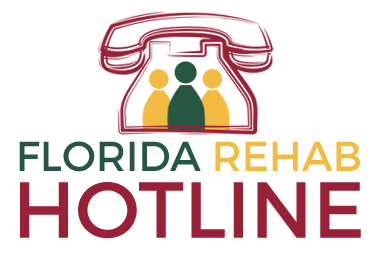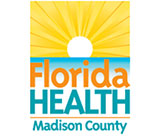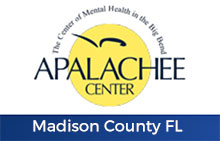Madison County FL Rehab Hotline
Madison County Florida Substance Abuse Treatment Helpline
Our Madison County, FL Helpline staff can also offer options for the next steps you or a loved one can take. This includes drug and alcohol treatment recommendations, detox, or other support options. If you need immediate medical attention or have an emergency, call 911 Now. If you need immediate medical attention, call 911 now.
Madison County FL Substance Abuse Statistics
Madison County, nestled in the heart of Florida, is known for its scenic landscapes and close-knit community spirit. However, beneath this idyllic façade lies a concerning issue: substance abuse. Let us examine the substance abuse statistics in Madison County, shedding light on the prevalence, impact, and possible solutions to this pressing problem. Madison County’s substance abuse statistics paint a stark picture of the issue at hand. According to recent studies, the county has experienced a steady rise in substance abuse cases over the past decade. From alcohol addiction to illicit drug use, the numbers reveal a growing concern that demands attention.
To comprehend the root causes of substance abuse in Madison County, we must explore the contributing factors. Economic disparities, limited access to quality healthcare, and a lack of educational resources are among the elements that exacerbate substance abuse rates. Understanding these factors allows us to address the issue from a holistic perspective.
Substance abuse not only affects individuals but also has a profound impact on the community as a whole. The consequences of addiction ripple through families, schools, and workplaces, leading to strained relationships, decreased productivity, and increased crime rates. By examining the social and economic repercussions, we can comprehend the urgency of finding viable solutions.
Fortunately, Madison County has taken steps towards combating substance abuse. Local organizations, community leaders, and healthcare professionals have joined forces to implement prevention programs, treatment facilities, and support networks. By highlighting these initiatives, we can inspire others and encourage collaboration in the fight against substance abuse.
As we conclude our exploration of the substance abuse statistics in Madison County, Florida, it becomes evident that this issue requires collective action. By raising awareness, fostering education, and supporting individuals on their journey to recovery, we can make a difference. Let us join hands and work towards a healthier, substance-free future for Madison County and its residents.
The Madison County FL Drug & Alcohol Rehab Hotline

Madison County FL Addiction Resources

Madison County Florida Government Substance Abuse Resources
Madison County Florida Government Substance Abuse Resources Madison County, Florida, is dedicated to addressing substance abuse challenges through its government-led initiatives and comprehensive resources. The county government actively provides substance abuse prevention, treatment, and support services to enhance the well-being of its residents. These resources encompass counseling, access to rehabilitation programs, and educational initiatives aimed at raising awareness about the impact of substance abuse. By collaborating with local healthcare providers and community organizations, Madison County’s government strives to create a supportive framework for individuals on the journey to recovery, contributing to the overall health and resilience of the community. The county’s substance abuse resources play a vital role in promoting recovery and fostering a safer and more resilient Madison County.
Madison-Taylor County Florida Opioid Response Coalition
Madison-Taylor County Florida Opioid Response Coalition The Rural Communities Opioid Response Program (RCORP) was started by HRSA as a multi-year initiative to address barriers to substance use prevention, treatment, and recovery in rural counties. In 2018-2019, MTORC completed a one-year RCORP-Planning project, and produced a Needs Assessment for Madison and Taylor Counties. Prevention of Overdose recognition and reversal, Distribution of naloxone ( NARCAN®), Promote community awareness of substance use disorders and prevention strategies, Provide training to other providers and professionals, Enroll prescribers in Prescription Drug Monitoring Program(s), Expand access to behavioral health screenings and referrals to treatment, Provide evidence-based prevention and life skills in the schools.

Madison County FL Alcoholics Anonymous District 5 North Florida
Madison County FL Alcoholics Anonymous District 5 North Florida is an essential resource in the community, providing a supportive environment for individuals navigating the challenges of alcohol addiction. This district organizes regular meetings where participants can share their experiences, strengths, and hopes, fostering a sense of community and understanding. By adhering to the principles of the twelve-step program, District 5 North Florida AA in Taylor Madison plays a vital role in helping individuals achieve and maintain sobriety. The district’s commitment to peer support, anonymity, and recovery-oriented activities contributes significantly to the overall well-being of those seeking assistance with alcohol-related issues in Madison County FL. For specific details on meetings and services, individuals are encouraged to reach out directly to the local Alcoholics Anonymous District 5 North Florida.

Madison County FL Alcohol Drug Detox Apalachee Center
Madison County FL Alcohol Drug Detox Apalachee Center Our Primary Care Center Detox unit provides short-term medically-supervised alcohol and drug detoxification, assessment, education and referrals. Millions of Americans suffer from substance dependence or abuse. Apalachee Center, Inc.’s Primary Care Center provides an intensive short-term detoxification program to help people with addiction and dependency. PCC is a non-judgmental, educational based program. Clients are strongly encouraged to continue a high degree of involvement in support groups after discharge. Referrals to community agencies and programs that assist in continuing the recovery process is part of after care planning.
